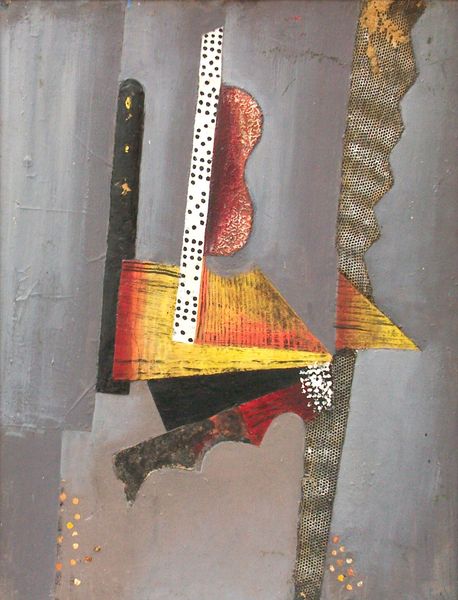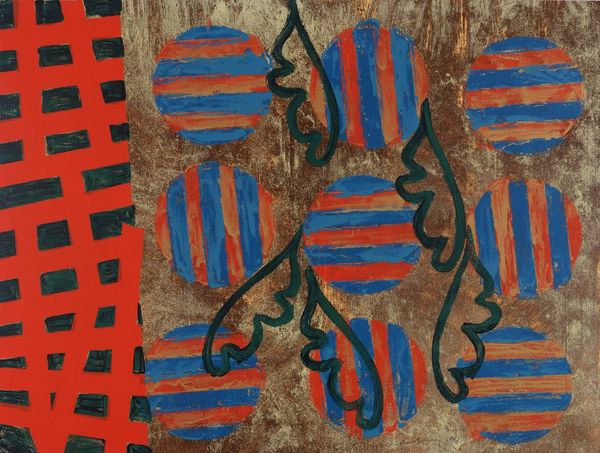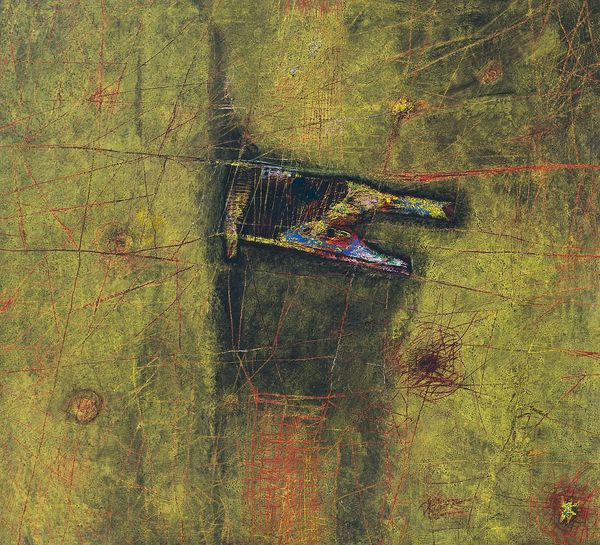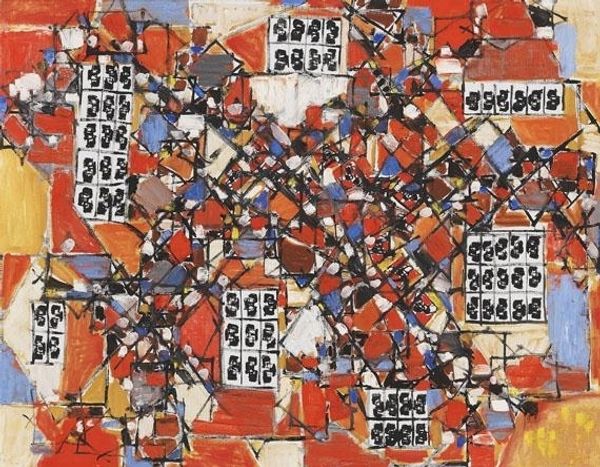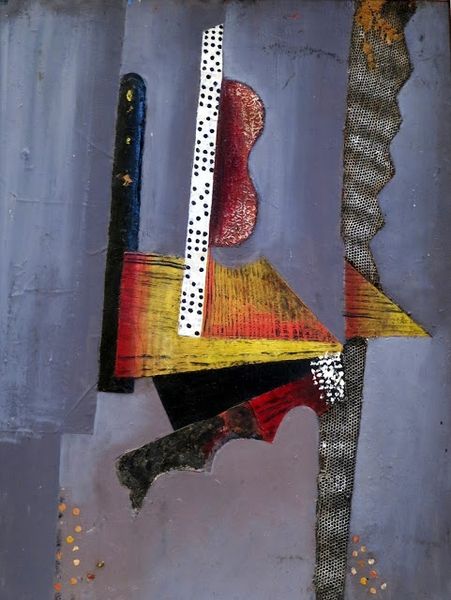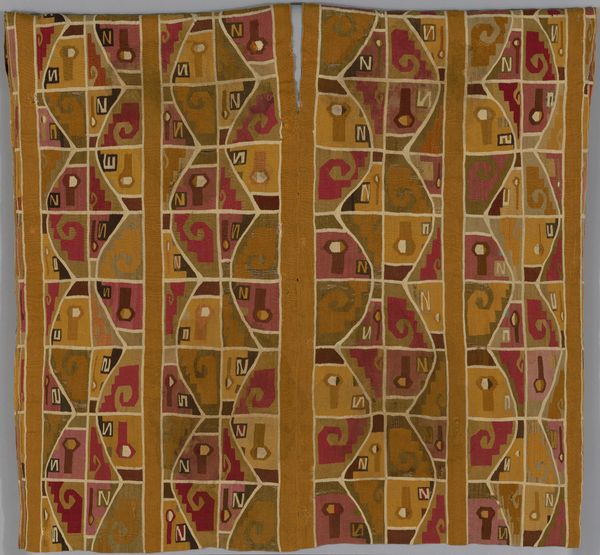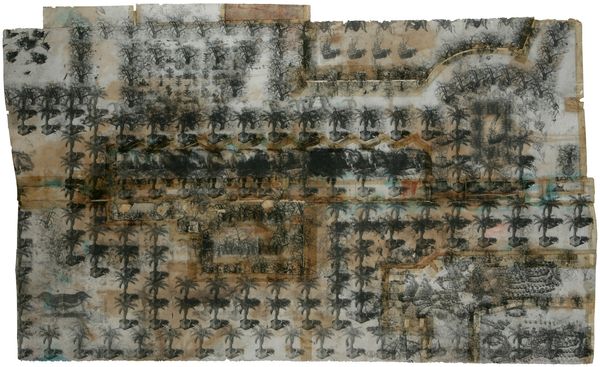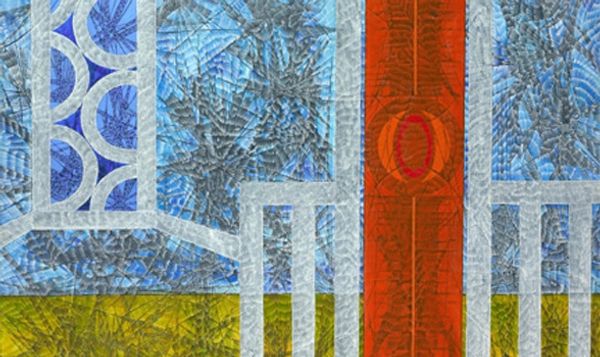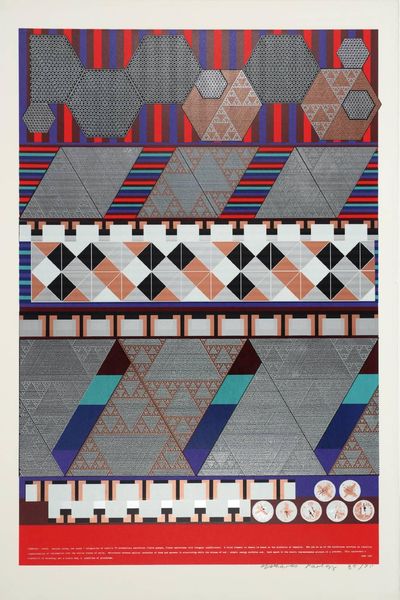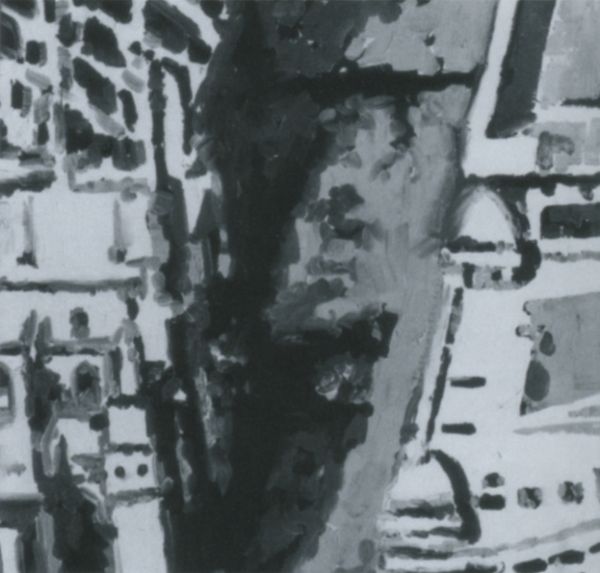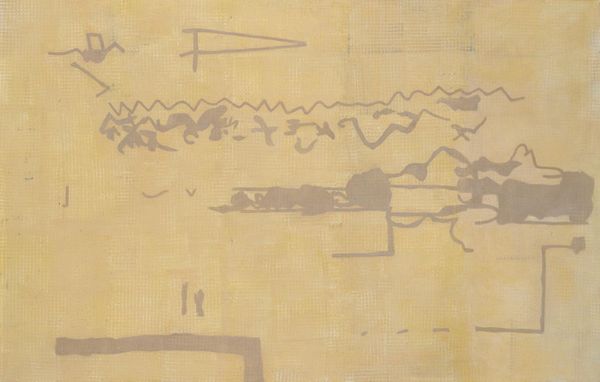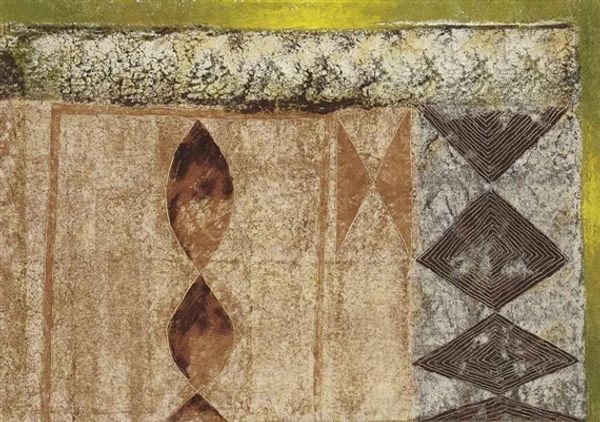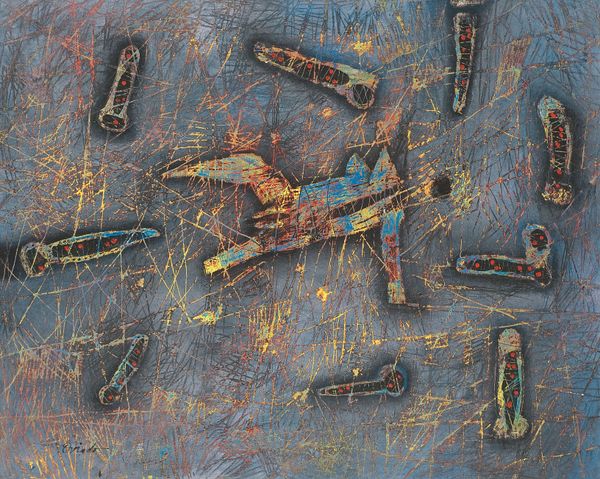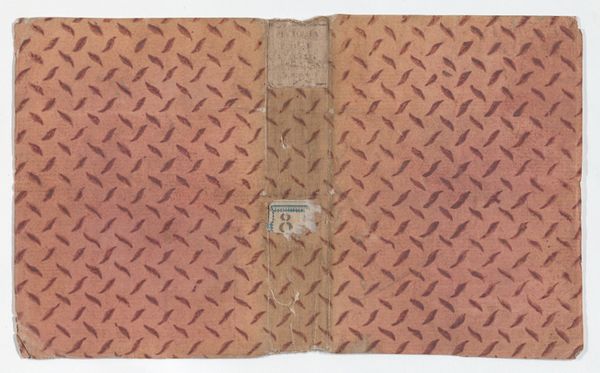
Dimensions: displayed: 1982 x 3350 mm
Copyright: © Stephen Buckley | CC-BY-NC-ND 4.0 DEED, Photo: Tate
Editor: This is Stephen Buckley's "Gloucester," currently held at the Tate. It's quite large. I’m struck by the way the shapes seem to be coming apart, like a deconstructed building. How do you interpret this work? Curator: Considering Buckley's interest in challenging conventions, I see a commentary on societal structures. The fractured forms and disparate materials suggest a critique of established order. It makes you wonder what "Gloucester" signifies in relation to post-war British identity. Editor: That's interesting. So, you see a political dimension to what I initially perceived as purely abstract? Curator: Absolutely. Art doesn't exist in a vacuum. It reflects and shapes social narratives. How do you think contemporary audiences might respond to this commentary on structure and form? Editor: I hadn't considered it in that way, but that gives me a new perspective. Thanks!
Comments
Join the conversation
Join millions of artists and users on Artera today and experience the ultimate creative platform.
tate 9 months ago
⋮
As 'Gloucester' demonstrates, Buckley frequently employs strongly defined abstract motifs combined with bold patterns. This tendency has an affinity with heraldry, and it derives in part from his longstanding interest in the English Renaissance, especially Tudor architecture. His use of repeated patterns relates to tapestry and also to linenfold carving. 'Gloucester' belongs to a series of his works whose titles derive from Shakespeare's history plays. In this case, Gloucester is one of the characters in 'Richard III'. This literary reference is underscored by connections with Italian Renaissance art. The linear elements and fragments of pattern allude to paintings by Uccello and Botticelli. Gallery label, September 2004
